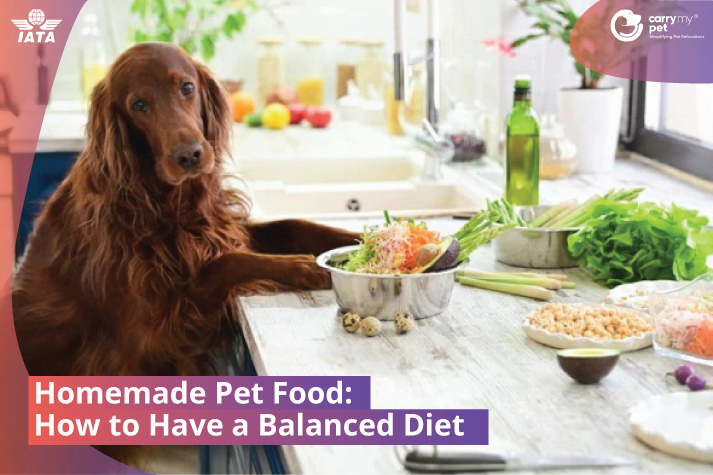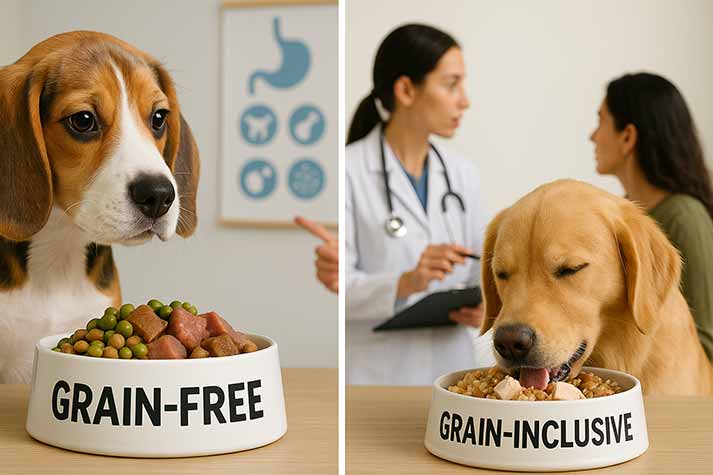
23 Oct
Homemade Pet Food: How to Have a Balanced Diet
Pet parents around the globe have one wish: for their fur baby to be healthy,
happy, and safe. The diet plan and food being consumed by a pet is of paramount
importance for the maintenance of their health and happiness. A balanced diet
will lead to your pet having a strong immune system which can ward off any
potential diseases or threats. A balanced diet is also critical in their
development, as a lack of certain vitamins and minerals impacts them negatively;
their age-specific development, behaviour, temperament, and their coat. Given how the diet of an organism plays a fundamental role in their subsequent
growth and development, it comes as no surprise that pet parents are opting out
of pre-packaged food items and switching to a more homemade diet for their
babies. Pre-packaged food items are often riddled with preservatives, not to
mention being exorbitantly expensive when compared to home cooked foods.
Therefore, homemade meals for your pet are not only more economical, but
healthier as well. You can prepare your pets meals at home, provided you have
balanced and quality ingredients while doing so. Let’s take a look at what
these are. Meat is a central part of a homemade meal for your pet. Meat constitutes 3/4th of
your pet’s meal, and if you have a carnivorous pet, its where they get a
sizeable amount of their protein intake. Some different types of meat you can
provide your pet with are chicken, lamb, pork, and turkey. Fish can also be
served, but sparingly. Since this ingredient makes up the majority of your
pet’s meal, it is important to only purchase high-quality meat for
homemade recipes. Specify meats which have no more than 20% fat content. Chicken
hearts and livers are typically the easiest to source and most nutritional meats
you can feed your pet. Vegetables are important for your pet, but not quite as important as they are for
us humans. At any given point, vegetables only constitute 1/4th of your
pets’ meal. They are a source of vitamins and minerals, but it is
difficult to prevent a loss in their nutritional value while adding them to your
pet’s diet. Typically, it is more efficient to puree vegetables as opposed
to chopping them, as chopped vegetables are not as easy to digest for pets.
Vegetables you can include in your pet’s diet include squash, zucchini,
pumpkins, carrots, peas, beets, yams, broccoli, cauliflower, green beans. While cooking for your pet at home is a fabulous endeavour, you should be mindful
of the composition of said meals, to prevent any adverse reactions. Ingredient
selection is key, because obviously, including something your pet cannot digest
or is harmful to them is problematic, whether done unintentionally or otherwise.
The first thing to avoid is carbohydrates. Carbohydrates are a macronutrient
which are the main source of energy in humans. But, for animal and pets, they
are not quite so beneficial. Dogs, for instance, cannot digest carbohydrates;
they lack the necessary digestive enzymes to do so. Instead of providing them
with energy, carbs simply pass through their digestive systems and are a cause
for concern. Dogs are adversely affected by carbs, which trigger a host of
issues in them: obesity, diseased kidneys, allergies, and inflammatory bowel
disease, to name a few. It is best to leave carbs on the shelf when concocting a
homemade recipe for your furry friend. Fruits can be had, but again, it depends upon what kind. A dog may have apples,
cucumbers, peaches, watermelons, mangoes, bananas, and strawberries, but there
are other fruits which may prove fatal for their health Regardless of how good a cook you are, or how reputed the recipe you’ve
selected is, it will probably not cover 100% of their day-to-day nutritional
requirements. You pet will need supplements in their food if you’re
cooking every meal for them daily. But, don’t just run a google search
about pet supplements and start adding them in according to the first result.
Your pet is unique, their needs are unique, and so are their supplementary
needs. Consult your veterinarian professional before even considering any
supplements for your pet.Meat
Vegetables
What to Avoid
Supplementing Their Diet






AUTHOR’S BIO
Carry My Pet
Passionate pet enthusiasts and globetrotters, dedicated to easing furry friends' journeys worldwide. Penning tales of compassion at CarryMyPet, where every relocation is a tail-wagging adventure.